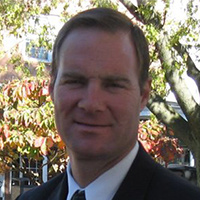La Jose RICO Act Lawyer, Pennsylvania
Sponsored Law Firm
-
 x
x

Click For More Info:
-
The Law Offices of Richard L. Cooper, P.A.
848 Brickell Avenue Suite 800 Miami, FL 33131» view mapDWI/DUI, Drug Trafficking, Felony Nationally Ranked Top 40 Under 40
With Richard L. Cooper you can expect a trusted confidant who will work diligently to fully understand your case and determine a road map to help you regain control of your life.
800-756-2781
Not enough matches for La Jose RICO Act lawyer.
Below are all La Jose Criminal lawyers.
William A. Shaw
✓ VERIFIEDWilliam Shaw is a practicing lawyer in the state of PA handling personal injury matters.
Joseph Drew Ryan
✓ VERIFIEDJoseph Drew Ryan is a practicing lawyer in Pennsylvania handling criminal defense matters.
Corey J. Riddell
✓ VERIFIEDIn 1988, Corey J Riddell received his B.A. in Political Science from Slippery Rock University and J.D. from Ohio Northern University Pettit College of... (more)
FREE CONSULTATION
CONTACTChristopher E Mohney
Shawn Brian Cohen
Michael B. Cohen
FREE CONSULTATION
CONTACT
 Richard L. Cooper Miami, FL
Richard L. Cooper Miami, FL AboutMiami Attorney at Law
AboutMiami Attorney at Law ServicesCriminal Defense
ServicesCriminal Defense



